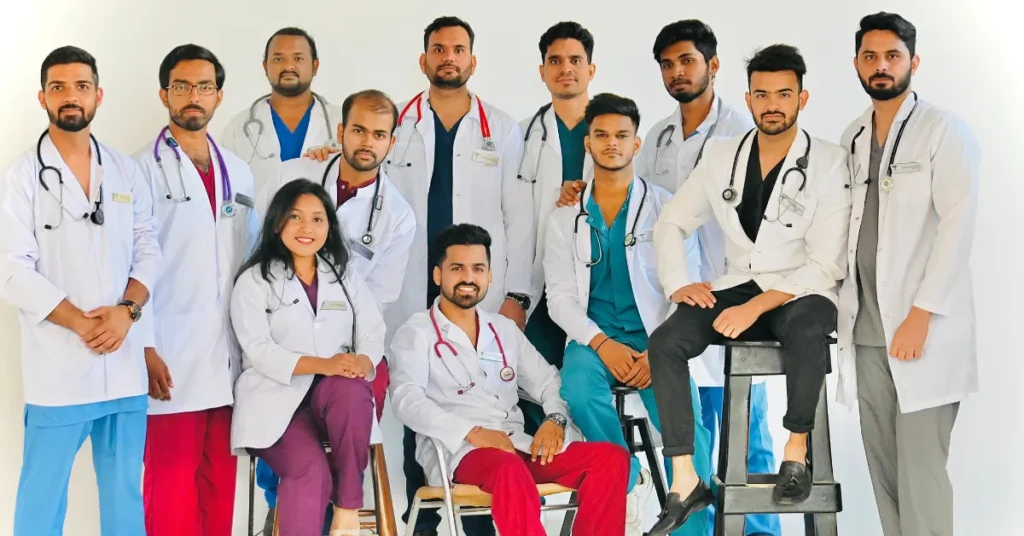AMBBS: Specialist Hospital Affiliated with Government Universities

The field of medicine in India is supported by numerous prestigious institutions, among which government universities play a pivotal role. These institutions often operate specialized hospitals that cater to various medical needs while also serving as training grounds for future healthcare professionals. One notable example is the Bachelor of Medicine and Bachelor of Surgery (MBBS) program, commonly referred to as “AMBBS,” offered by many government medical colleges.
Overview of AMBBS and Government Medical Colleges
The AMBBS program is the cornerstone of medical education in India, leading to the training of doctors who will serve in various healthcare capacities. Government medical colleges, affiliated with universities, are essential in this regard, providing quality education and practical training. These institutions often run specialized hospitals, enabling students to gain hands-on experience in different fields of medicine.

Features of Government Medical Colleges and Their Hospitals
- Quality Education and Training: Government medical colleges adhere to high educational standards set by the National Medical Commission (NMC). The curriculum is rigorous, combining theoretical knowledge with practical skills through clinical rotations in attached hospitals.
- Specialized Healthcare Services: The hospitals affiliated with these colleges often provide a wide range of specialized services. This includes departments such as cardiology, neurology, oncology, pediatrics, and more, ensuring comprehensive care for various health issues.
- Research and Development: Many government medical institutions are involved in significant research projects aimed at improving healthcare delivery and finding innovative solutions to medical problems. This research often translates into better treatment protocols and practices in their hospitals.
- Affordability: One of the critical advantages of government hospitals is the affordability of healthcare services. Treatment costs are significantly lower compared to private hospitals, making healthcare accessible to a larger segment of the population.
- Community Service: These institutions often engage in community outreach programs, providing medical services in rural and underserved areas. This not only benefits the community but also enriches the students’ learning experiences.
Notable Government Medical Colleges and Hospitals
- All India Institute of Medical Sciences (AIIMS), New Delhi:
Specialties: Known for its excellence in various fields such as cardiology, neurology, and gastroenterology.
Research: AIIMS is a leader in medical research and innovation, contributing to healthcare advancements in India.
- King George’s Medical University (KGMU), Lucknow:
Specialties: Offers advanced treatment in fields like surgery, medicine, and obstetrics.
Training: KGMU is renowned for its postgraduate programs and specialist training.
- Jawaharlal Institute of Postgraduate Medical Education and Research (JIPMER), Puducherry:
Specialties: Provides comprehensive services in areas like emergency medicine and trauma care.
Education: JIPMER emphasizes research alongside its MBBS and postgraduate programs.
- Postgraduate Institute of Medical Education and Research (PGIMER), Chandigarh:
Specialties: Focuses on critical areas such as oncology, nephrology, and neurology.
Research: Known for its research contributions, PGIMER significantly impacts medical practices in India.
- Bangalore Medical College and Research Institute (BMCRI), Bangalore:
Specialties: Offers a range of services in surgery, psychiatry, and community medicine.
Community Engagement: BMCRI is involved in numerous public health initiatives.
Conclusion
Government universities and their associated hospitals play a crucial role in shaping the future of healthcare in India through the AMBBS program. They not only provide quality medical education and training but also ensure the delivery of specialized healthcare services to the public. With their emphasis on affordability, community service, and research, these institutions are indispensable in addressing the healthcare needs of the nation and developing the next generation of medical professionals.